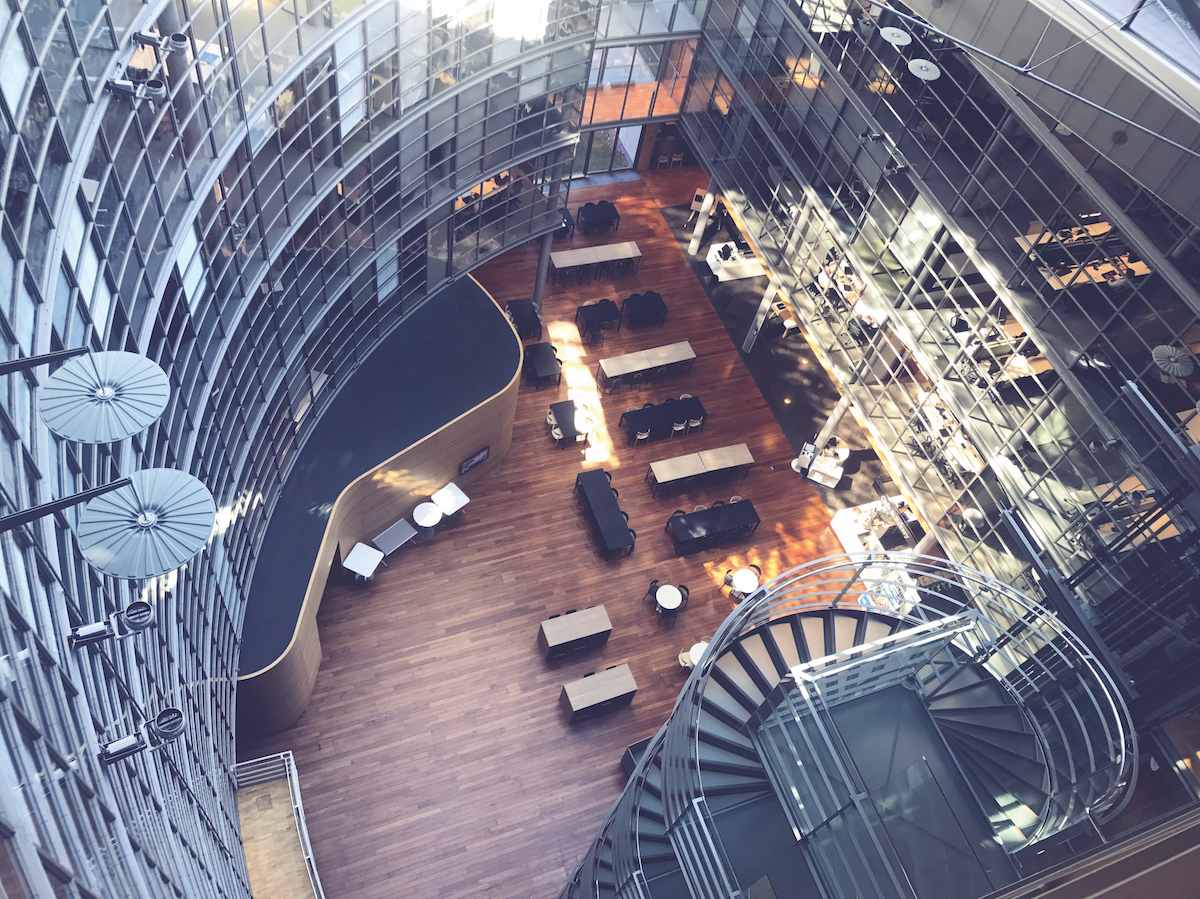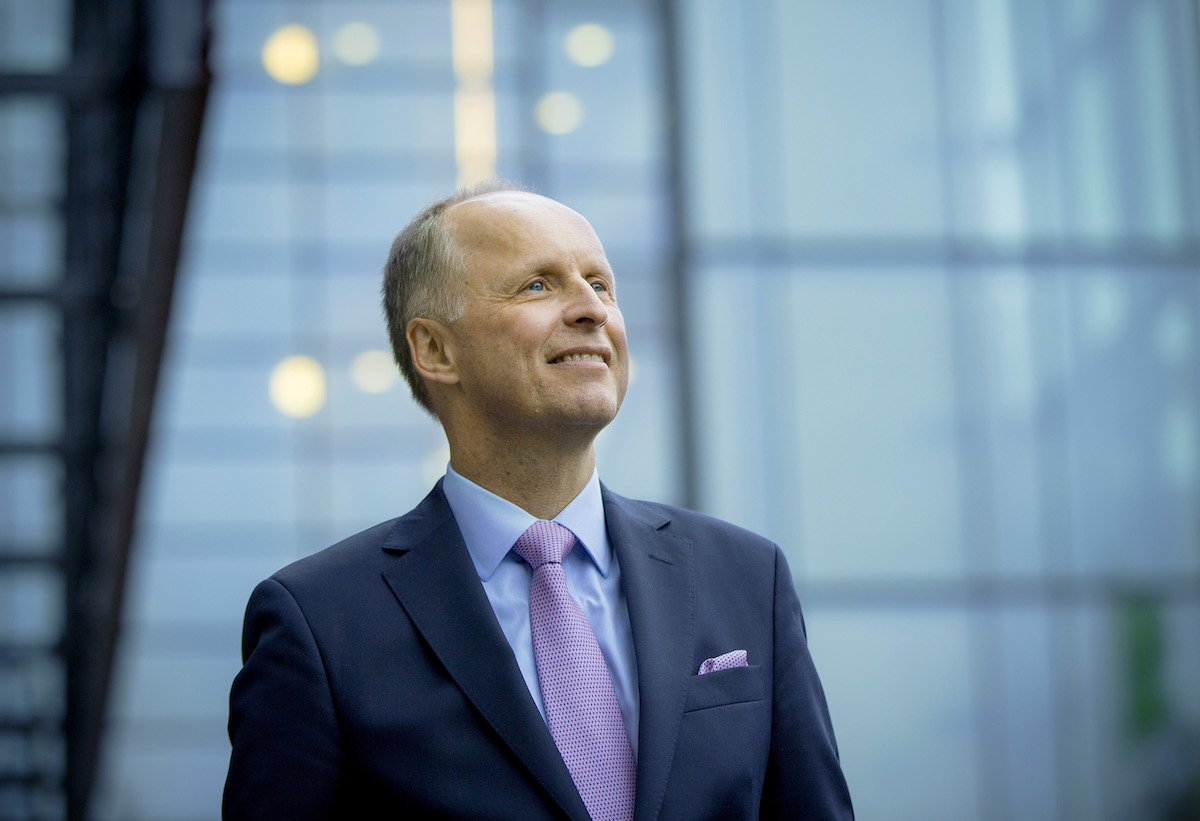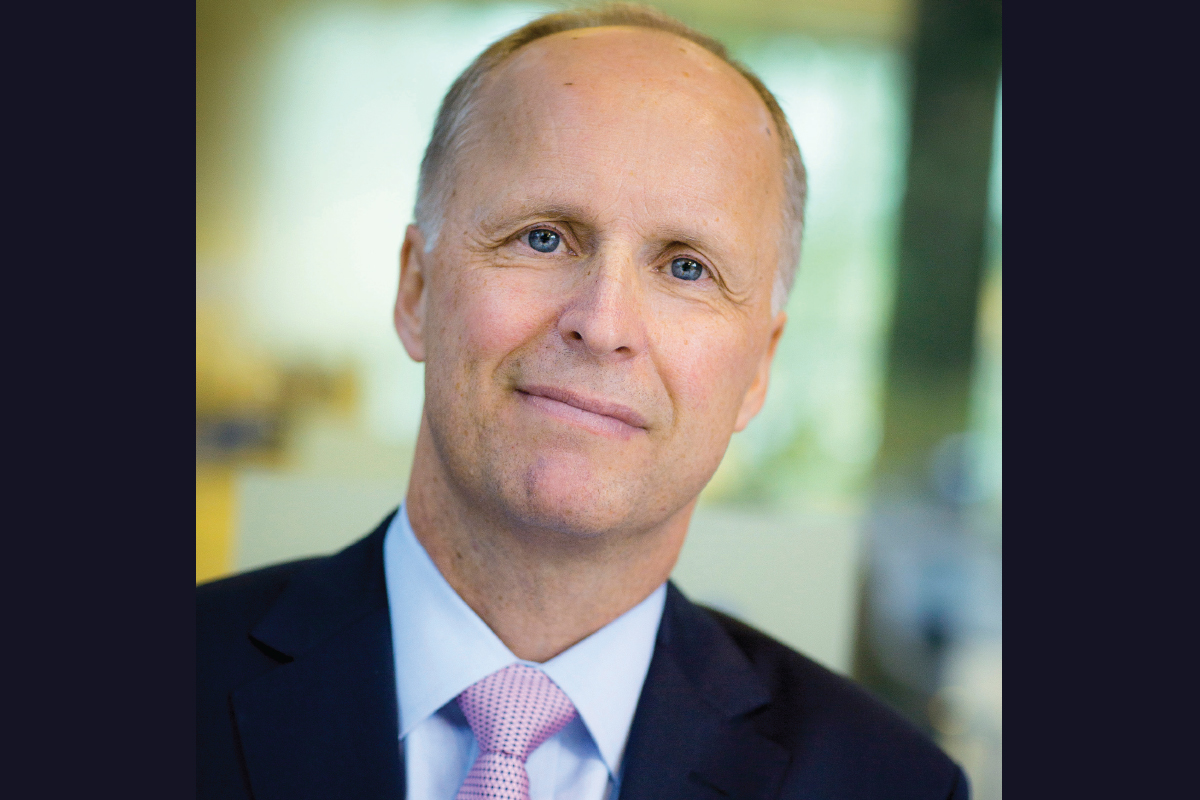Kimmo Alkio, CEO of Finnish company Tieto Corporation, is passionate about IT. He joined the industry after graduating from university, and spent 15 years with former US computer manufacturing giant Digital Equipment Corporation (DEC).
“IT has always been of extreme interest to me because it’s such a rapidly moving sector,” Kimmo tells The CEO Magazine. “It’s really inspiring, and I was fortunate enough to work in the US at a very young age.”
In its heyday in the late 80s, DEC was one of the largest computer companies in the world, second only to IBM, but in the later tough economic climate – and with the company’s inability to remain competitive in the fast-transitioning computer market – it suffered significant losses and was later acquired by Compaq.
After Kimmo had worked in various positions at both DEC and Compaq, he moved on to cybersecurity firm F-Secure. In 2005, he left F-Secure to serve as Vice-President of Nokia Networks, before returning to F-Secure a year later to serve as President and CEO. In 2011, he took up the reins at Tieto Corporation.
The company provides IT software and services to assist businesses in enhancing their operations. It has a presence in more than 20 countries. One of Kimmo’s top priorities after he was appointed was to undertake a complete transformation of the business. “We renewed our service portfolio, our investment capacities and our leadership teams,” he explains, adding that Tieto has since increased its investments for new services and technologies by 85%.
“We redefined our strategy twice and the latest one relates to a world with extreme data-centricity and a future dominated by the likes of artificial intelligence (AI) and natural language processing (NLP).” Falling under the umbrella of AI, NLP allows machines to both analyse and understand human language so users can converse with them rather than
use software programs.
In 2016, the company launched the Data-Driven Businesses unit designed to assist Nordic companies as they develop innovative data-based solutions and create new business models. “This is an extremely interesting business area,” Kimmo notes. And it’s not hard to see why as the division appointed its first AI system, Alicia T, to join its leadership team for data-driven business – a first for a Nordic business.
Improving the experience of the customer
Better customer experience was another objective of Tieto’s overall transformation. “Before, Tieto needed to pay a lot of attention to quality-related inconsistency and challenges with customer experience, which are the prerequisites for growth,” Kimmo recalls.
“This was a period that was extremely demanding. But we have driven huge improvements in the way customers perceive Tieto through the customer experience surveys. Now we have reached an all-time high feedback rate from our customers.”

This feedback has also been a reflection of the company’s enhanced product range. “As we have been able to renew the company successfully, we have been able to reach the performance level of our global peer group in the IT software services industry with the development and initiation of new services and technologies, such as our combined private and public cloud services.”
Amid this era of digitalisation – the complete transformation of a company and its operations using digital technology – Kimmo discusses the company’s ‘world of duality’ concept that all businesses face.
The era of digitalisation
“What we mean is that every company should master two things in parallel,” he notes. “One is reinvention of your revenue streams and customer experience. The other is continuous improvement in efficiency, whereby I think all senior executives nowadays recognise that technology is indeed the greatest driver of sustainable efficiency improvement.”
Every company should master two things in parallel … One is reinvention of your revenue streams and customer experience. The other is continuous improvement in efficiency.
This is how Tieto copes with the current digital environment. “With that in mind,
we have a set of very specific services and solutions regarding both sides of this duality,” Kimmo says.
“It accelerates the speed of change our customers are able to generate for their enterprises and to execute their own strategies even faster. The opportunities of the data-driven world and the appetite for faster change from every sector tends to accelerate the speed of change, not just for our customers but also for our whole industry. It accelerates the openness for adopting new technologies and new business models. Therefore, changing companies towards a new futuristic direction becomes ever more important.”
Tieto’s initiative
Moreover, Tieto has established an initiative called ‘Learning as Lifestyle’, which encourages employees to join courses around advanced analytics, design thinking and the like so they are in tune with the current IT industry trends.
Kimmo describes the company culture as being open source, and that this begins with respecting every individual. “Then,” he continues, “we add the notion that at Tieto we like to work as non-hierarchically as possible. It reflects the type of highly democratic environment that tends to be in place in Nordic society as well. We want to create an environment where employees feel that it is a great place to be and one that provides the type of work–life balance suited to different workers. The final factor, which comes quite naturally, is the continuous drive for high performance.”

Further, Kimmo ties this culture to the company’s focus on customer experience. “Customers are at the centre of our culture,” he says. “Everything we look at is through the lens of our customers, how they see Tieto.” To this end, Kimmo wants his employees to have what he calls an inherent customer curiosity: “Where all levels of a firm are spending time getting a feel of what creates the greatest value to our customers.”
Sustainability mindset
One key area Tieto is heavily involved in is sustainability, something Kimmo says
is becoming more important for customers, investors and employees alike. “We just received a LEED [Leadership in Energy and Environmental Design] platinum sustainability certificate for our head office in Finland,” he says.
“We’re the first in Finland to receive that kind of certificate.” It’s the highest certification granted by LEED in the country and only 19 buildings in Europe have been certified at platinum level. The company’s revamped head office, located in Keilalahti, uses 60 per cent less energy than its old HQ, and is equipped with sensor technology and hundreds of LED lamps.
The building is powered by wind electricity while the cooling system relies on sea water. “We have, for many years, worked systemically on minimising the environmental impact of our facilities, data centres and travels, and in our sustainability report we also quantify these on an annual basis,” Kimmo comments.
He adds that the sustainability mindset is encouraged with its customers too. “We recognise that the biggest environmental impact is actually through our customers, so by helping them to digitalise their core processes, for example through smarter logistics, we help them save use of energy, paper and emissions.”
Tieto delivered a strong financial performance in 2017 and that same year announced its sixth acquisition, the purchase of Swedish consulting firm Avega. “This is the result of several years of work by 14,000 people,” Kimmo says.
He asserts that the speed of change in the IT industry is heading in the right direction and envisions a positive outlook for Tieto within it. “This industry goes through significant changes all the time, and the pace, if anything, is expected to accelerate,” he says. “We anticipate driving a healthy degree of growth in practically all our businesses in the years to come.”



